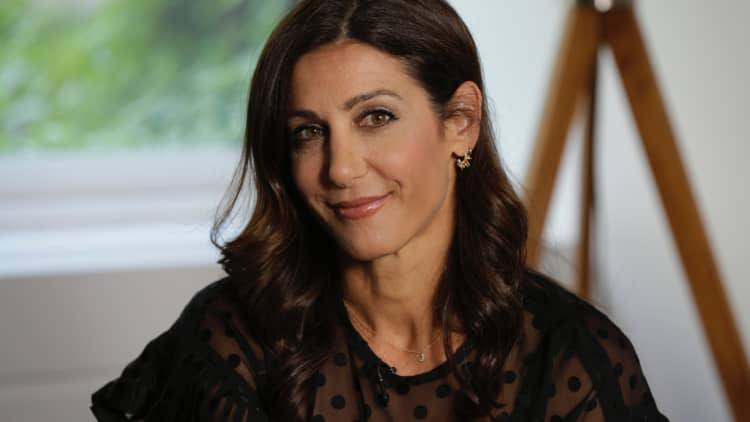Heidi Zak is the co-founder and co-CEO of ThirdLove. In 2013, frustrated by the bra shopping experience, Zak left Google to start ThirdLove, a lingerie brand that creates its products based on millions of women's real measurements. In the first installment of a new series for CNBC Make It, Zak shares a tough moment that changed how she led her team.
People often envision the job of CEO as the most enviable position in a company. While I've found a lot of fulfillment by taking on that role at ThirdLove, I also quickly learned there were dramatic differences between my assumptions and the reality I faced.
As a leader, I have always aimed to inspire, mentor, lead — and protect. But when I became a CEO, I faced a difficult situation where I learned that not every important move could be coached or arrived at through consensus. Sometimes, you need to just go with your gut, make a decision and tell people the plan.
Back in 2014, our team at ThirdLove built our own front end and back end for our website. To be honest, it was a poor move on our part. Our site couldn't handle even minor upticks in traffic and lacked basic e-commerce features (not what you want for an e-commerce only brand).

The moment of truth came when we were featured on a segment on "Good Morning America." It was just the exposure we needed as a young company. We were thrilled to be talking about ThirdLove to millions of women across the country. Our site couldn't handle the traffic that came through, and our site went completely down. This was our first major publicity moment, and we were giving customers a lackluster experience.
By trying to manage the technical aspects on our own, we diverted our attention away from what we really wanted to do: create a great product and ensure our customers had a top-notch buying experience. It was time to get our priorities straightened out.
My co-founder and I made the decision to start using a Web platform service to support our company online. A lot of our engineers disagreed with the choice.
As leaders, we felt we really had to push forward—regardless of how people felt. It ended up being the right decision. We're still using that platform to this day and the change allowed us to scale.
But it wasn't easy. To move forward, I had to recognize how my leadership style could carry over into my role as CEO. Even though I couldn't protect everyone, I still needed to lead and understand the different types of leaders around me.
I tend to lead by influence. That means I'm more comfortable inspiring people, asking them questions, and letting them reach a conclusion on their own. Some of the engineers came around to our decision, but some left. That was a conclusion I had to accept.

Influence is by no means the only way to lead, and when we had to make the tough decision to move to a third-party service, it just needed to get done. I didn't have time to dive into a 30-minute discussion and get people on board. They may not have agreed, but it didn't matter. I had to tell them what to do, and they needed to do it because I was telling them.
I'm not as comfortable with that type of leadership. But it's important for me, and any CEO, to realize when it makes sense. It was absolutely essential that I learned to trust my intuition. The problem is, it's harder to do that when you become CEO. It can seem awkward or uninformed to say, "This is how I feel about it," rather than relying on cold, hard data.
But honestly, some of the worst decisions I've made as a CEO came from not listening to my intuition. It wasn't always right 100 percent of the time, but there was usually a reason why I got that gut feeling about a person or situation. At the very least, I felt I had to explore the situation to assess what was needed, or what was throwing me off. Most times, I was able to pinpoint what that was, and could quickly work to remedy the situation before it went off the rails.
Understanding these nuances was just part of my evolution as CEO. Truthfully, there will never be a time when I can look around, dust off my hands, and think, "That's it. I know everything I need to know."
Like this story? Subscribe to CNBC Make It on YouTube!
Don't miss:


